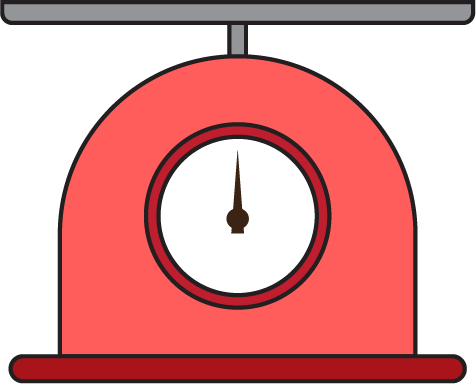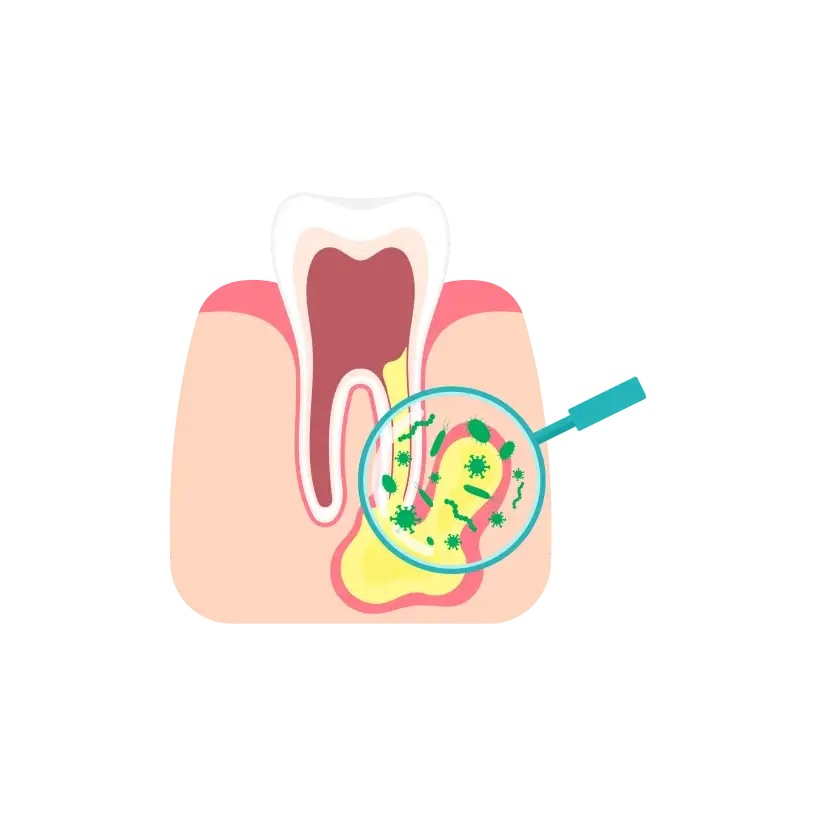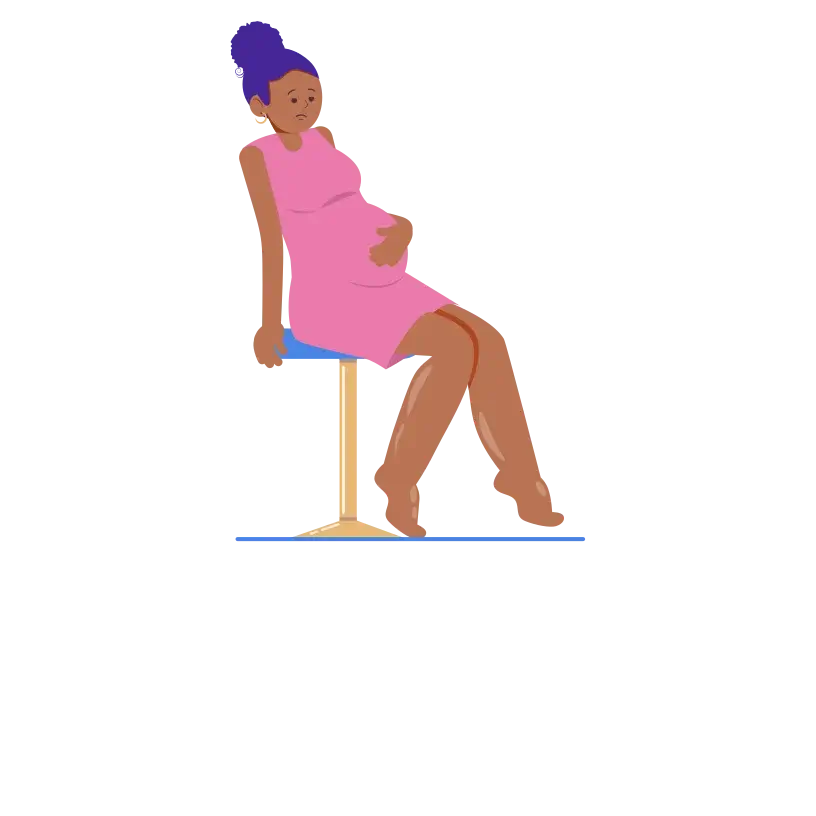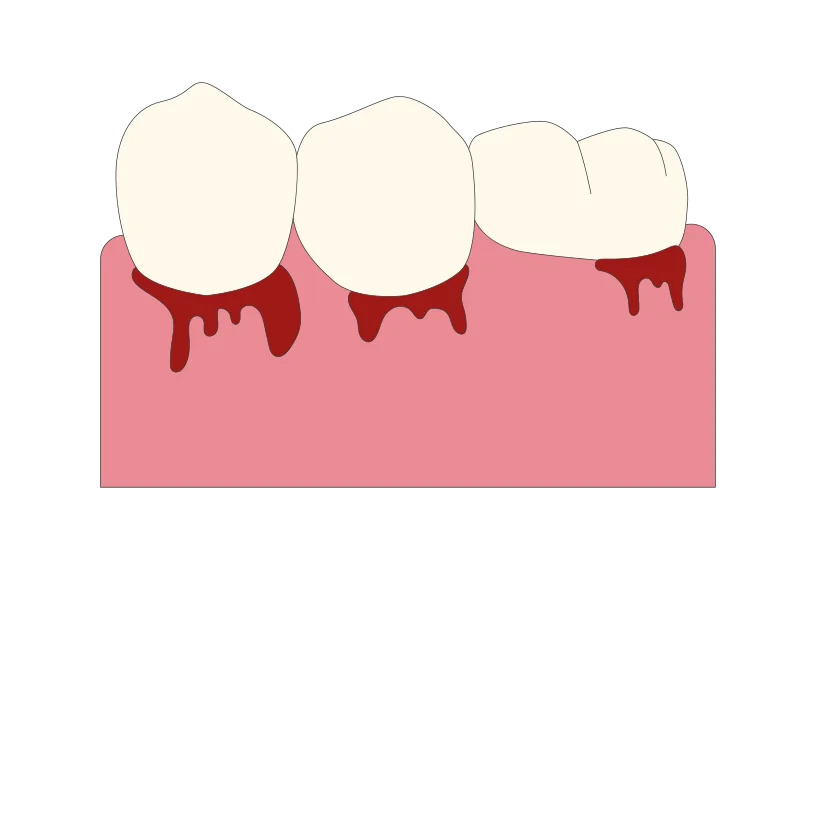Menu

Welcome to the beginning of your second trimester as a pregnant woman. At week 13, you have about 27 weeks to complete your pregnancy journey. Your baby has been growing bigger and bigger every week and is now about the size of a lemon.
You should be feeling relaxed by now, as the second trimester is generally known as the easiest, with fewer symptoms and more energy.
Your baby’s big head is becoming more balanced with the other body parts. His head is currently about half the size of his entire frame.
This week, your baby’s eyes have arrived but are still closed. The eyelids are shut to protect those tiny peepers as they evolve.
Your baby is getting ready for its very first cry at birth. With the formation of the vocal cords which have started forming this week, their laughter and the first words are promised.
Your baby’s big head is becoming more balanced with the other body parts. His head is currently about half the size of his entire frame.
This week, your baby’s eyes have arrived but are still closed. The eyelids are shut to protect those tiny peepers as they evolve.
Your baby is getting ready for its very first cry at birth. With the formation of the vocal cords which have started forming this week, their laughter and the first words are promised.
So far, your little one’s head has been the biggest part of their body, but that’s starting to shift. Now, their head makes up only around a third of their body. Your baby’s eyes are closed during this period for protection. Their eyes will remain closed till about the 28th week. The vocal cords are still developing, and your baby can now swallow.
Distinctive fingerprints are now forming on the tips of your baby’s fingers. Their kidneys and urinary tract are fully operational, meaning the amniotic fluid they’ve consumed can now be expelled.
The soft tissue surrounding their head, arms, and legs gradually transforms into bone, giving them more strength and structure. Your little one has begun to urinate in the amniotic fluid that surrounds them. From now until the end of your pregnancy, a significant portion of the amniotic fluid will consist of your baby’s urine.
Your baby’s ovaries or testes are fully formed inside, and the final tweaks are done on the outside as they continue to develop. Your little one is becoming more active, moving around inside you. These movements will be random and jerky at first, but as time passes, they will become much smoother and more deliberate.
You might start feeling these movements around week 17 of your pregnancy. Your baby has also started learning how to suck, starting from sucking their thumb while in your womb. This action serves a purpose as it contributes to the development of their sucking reflex, which will be essential for feeding after birth.






Over the past few weeks, you’ve probably been feeling quite tired, sick, and slow. However, this week might bring some relief as you begin to experience a renewed burst of energy. It could be a good time to consider picking up your exercise routine again, which benefits you and your baby. Take it easy if you’ve taken a break for a few weeks; there’s no need to overdo it!
If you decide to be intimate and notice a bit of “spotting” afterwards, it’s typically nothing to worry about. However, if it happens, you may want to consider checking with your healthcare provider to be sure.
Pregnancy symptoms might persist a bit longer if you’re expecting twins or even triplets, but hang in there! Growing multiple babies is quite a challenge.
You may be able to feel your uterus above your pubic bone, and if you’re accustomed to sleeping on your stomach, you may need to change your sleeping position!
As your belly grows, you may feel some stretching sensations as your round ligaments stretch to accommodate the expanding uterus. Entering the second trimester, the risk of miscarriage decreases, which can bring some peace of mind as you progress through your pregnancy.
One more important aspect to consider now is your calorie intake! While it might be tempting to eat for two, it’s unnecessary. It’s advised to aim for a gradual and steady weight gain during pregnancy. If you started within a healthy weight range, the recommended maximum weight gain is around 35 pounds.
Now that your uterus is expanding, it’s growing upwards and out of your pelvis, which means you’re beginning to appear pregnant visibly. It’s about time, isn’t it? As your pregnancy progresses, you can expect to look even more pregnant, especially since you’re now carrying a 13-week foetus, which requires a bit more weight gain. Obstetricians suggest healthily gaining weight, aiming for a gradual and steady increase throughout your pregnancy.

The second trimester is often referred to as the least symptomatic and the most energetic phase of pregnancy. As you begin to feel more like your usual self and experience a surge of energy, you’ll likely feel motivated to tackle tasks on your to-do list.
If you’ve been feeling too unwell or tired to exercise lately, now is the ideal time to reintroduce a fitness routine. Exercise not only benefits you but also your baby, and it can even contribute to making labour easier. It’s worth the effort.
Pregnancy hormones also play a role by relaxing the muscles at the top of your stomach, allowing stomach acid to flow into the oesophagus, causing heartburn. This is more likely to happen if you lie down after a big meal.
To alleviate discomfort, try sitting upright after eating and avoid triggers like chocolate, citrus fruits, and spicy or fried foods. Heartburn and indigestion may occur sporadically during pregnancy as your baby changes positions and your expanding uterus presses on your stomach.
These visible veins you may notice might not be the most appealing sight, but they’re a positive sign. They indicate that your body efficiently increases blood supply to deliver essential nutrients to your baby. The good news is that these veins tend to fade after birth as your body returns to its pre-pregnancy state.
As you transition into the second trimester, you might find some relief from the morning sickness and food aversions that have been bothering you. With this relief, your appetite may return, and you may start experiencing food cravings.
Researchers suggest that hormonal shifts during pregnancy significantly influence the emergence of cravings. Anecdotal evidence (personal experiences) indicates that an increased need for energy or essential nutrients could lead to physiological alterations in taste and olfactory sensitivity, thereby triggering cravings.
Occasional cramping during pregnancy is normal and can be caused by various factors like gas, bloating, or round ligament pain. Simple remedies like gentle movement, a warm bath or shower, staying hydrated, or resting can often help relieve abdominal discomfort.
However, in some instances, cramping could indicate a more serious issue. It’s important to contact your doctor or midwife if the cramping persists after resting for several minutes, if the pain is severe, if you experience unusual sensitivity or pain in your upper abdomen, or if you have additional symptoms such as fever or dizziness.
Your breasts undergo changes during pregnancy, too. By the second trimester, you’ll begin producing colostrum, the first form of breast milk your baby sucks on. Colostrum is typically yellow or light orange in colour and has a thick and sticky consistency. You might notice leakage from your breasts occasionally, but as long as there’s no pain or discomfort, it’s a normal part of pregnancy.

Progesterone and oestrogen are key hormones during pregnancy, but they might be slowing down your digestive system. This could lead to feeling a bit constipated at 13 weeks pregnant and experiencing some cramping.
To alleviate this, incorporating more fruits, vegetables, and whole-grain foods into your diet can boost your fibre intake and promote regular bowel movements. Drinking prune juice, staying hydrated with plenty of water, and regular exercise can also help keep things moving smoothly in your digestive system.

Sore or bleeding gums during pregnancy, known as pregnancy gingivitis, can be bothersome but is entirely normal. It’s not a sign of poor dental hygiene; it’s caused by hormonal changes that typically begin in the second trimester.
Maintaining regular dental check-ups and consulting your dentist if you experience any discomfort or concerns is crucial. In the UK, pregnant women are entitled to free dental care during pregnancy and up to one year after giving birth.

The second trimester is often referred to as the least symptomatic and the most energetic phase of pregnancy. As you begin to feel more like your usual self and experience a surge of energy, you’ll likely feel motivated to tackle tasks on your to-do list.
If you’ve been feeling too unwell or tired to exercise lately, now is the ideal time to reintroduce a fitness routine. Exercise not only benefits you but also your baby, and it can even contribute to making labour easier. It’s worth the effort.
Pregnancy hormones also play a role by relaxing the muscles at the top of your stomach, allowing stomach acid to flow into the oesophagus, causing heartburn. This is more likely to happen if you lie down after a big meal.
To alleviate discomfort, try sitting upright after eating and avoid triggers like chocolate, citrus fruits, and spicy or fried foods. Heartburn and indigestion may occur sporadically during pregnancy as your baby changes positions and your expanding uterus presses on your stomach.
These visible veins you may notice might not be the most appealing sight, but they’re a positive sign. They indicate that your body efficiently increases blood supply to deliver essential nutrients to your baby. The good news is that these veins tend to fade after birth as your body returns to its pre-pregnancy state.
As you transition into the second trimester, you might find some relief from the morning sickness and food aversions that have been bothering you. With this relief, your appetite may return, and you may start experiencing food cravings.
Researchers suggest that hormonal shifts during pregnancy significantly influence the emergence of cravings. Anecdotal evidence (personal experiences) indicates that an increased need for energy or essential nutrients could lead to physiological alterations in taste and olfactory sensitivity, thereby triggering cravings.
Occasional cramping during pregnancy is normal and can be caused by various factors like gas, bloating, or round ligament pain. Simple remedies like gentle movement, a warm bath or shower, staying hydrated, or resting can often help relieve abdominal discomfort.
However, in some instances, cramping could indicate a more serious issue. It’s important to contact your doctor or midwife if the cramping persists after resting for several minutes, if the pain is severe, if you experience unusual sensitivity or pain in your upper abdomen, or if you have additional symptoms such as fever or dizziness.
Your breasts undergo changes during pregnancy, too. By the second trimester, you’ll begin producing colostrum, the first form of breast milk your baby sucks on. Colostrum is typically yellow or light orange in colour and has a thick and sticky consistency. You might notice leakage from your breasts occasionally, but as long as there’s no pain or discomfort, it’s a normal part of pregnancy.

Progesterone and oestrogen are key hormones during pregnancy, but they might be slowing down your digestive system. This could lead to feeling a bit constipated at 13 weeks pregnant and experiencing some cramping.
To alleviate this, incorporating more fruits, vegetables, and whole-grain foods into your diet can boost your fibre intake and promote regular bowel movements. Drinking prune juice, staying hydrated with plenty of water, and regular exercise can also help keep things moving smoothly in your digestive system.

Sore or bleeding gums during pregnancy, known as pregnancy gingivitis, can be bothersome but is entirely normal. It’s not a sign of poor dental hygiene; it’s caused by hormonal changes that typically begin in the second trimester.
Maintaining regular dental check-ups and consulting your dentist if you experience any discomfort or concerns is crucial. In the UK, pregnant women are entitled to free dental care during pregnancy and up to one year after giving birth.
Pay attention to your vaginal discharge, and make sure to see your doctor if the discharge is plenty, greenish, red, or if it comes with pain and itching. You might have an infection, or it might even be a sign of miscarriage.
Avoid eating or drinking anything that contains alcohol. Exposure to alcohol during pregnancy can lead to foetal alcohol spectrum disorders (FASDs), resulting in developmental, behavioural, and intellectual disabilities.
Make sure you’re eating well, but not too much. Excessive weight gain can cause complications during pregnancy and childbirth. It can also make losing weight difficult after your pregnancy.
Watch out for harmful viruses and bacteria that can harm you and your baby. To protect yourself:
Before travelling to any region impacted by the Zika virus, seek guidance, as the virus has the potential to cause birth defects.
This is a sensitive period for your teeth, so ensure you take care of it. Visit your dentist and remember to brush your teeth twice a day, limit sugary snacks and beverages, and avoid smoking, which can aggravate gum disease. For sensitive gums, use a gentle toothbrush.
If you’re sick, brush in gentle circles, up and down and protect your teeth by rinsing your mouth with water to flush away harmful acid in your vomit. Stick to alcohol-free mouthwashes to reduce plaque.
At 13 weeks pregnant, your body requires extra support. Pregnancy and childbirth can weaken your pelvic floor muscles, but you can strengthen them through Kegel exercises. These simple exercises don’t require much time or effort and can yield significant benefits. By incorporating them into your routine during pregnancy, you can reduce urinary leakage post-birth and enhance sexual sensations.
If morning sickness has become a thing of the past, it’s time to enjoy breakfast! This is an ideal opportunity to fuel your body with calcium, protein, and essential nutrients in fruits, vegetables, and whole grains. Starting your day with a healthy meal can also establish a pattern of nutritious eating for the remainder of the day.
During pregnancy, your body works hard to produce more blood, which requires ample iron. This essential nutrient is crucial for maintaining you and your baby’s red blood cell count. To boost your iron intake, incorporate iron-rich foods, such as beef, duck, soy products, spinach, dried fruits, and potatoes with the skins on.
Studies have shown that individuals who have previously experienced a pregnancy loss are more susceptible to feelings of anxiety or depression during the first trimester of subsequent pregnancies. Additionally, they may have heightened levels of fears related to pregnancy.
Feel free to inquire about anything on your mind. If you’re experiencing pregnancy symptoms that are unclear or troubling, don’t hesitate to reach out to a healthcare provider or discuss them during an appointment. Remember, there are no silly questions.
Exercise is still encouraged if your doctor approves it. Walking, swimming, jogging, yoga, and using light weights are all excellent choices. However, at 13 weeks, it’s advisable to seek alternatives to abdominal exercises like sit-ups, which involve lying flat on your back.
The growing weight of your uterus can compress blood vessels, potentially reducing blood flow to your heart and causing lightheadedness. This, in turn, may slow oxygen delivery to your baby.
This is a sensitive period for your teeth, so ensure you take care of it. Visit your dentist and remember to brush your teeth twice a day, limit sugary snacks and beverages, and avoid smoking, which can aggravate gum disease. For sensitive gums, use a gentle toothbrush.
If you’re sick, brush in gentle circles, up and down and protect your teeth by rinsing your mouth with water to flush away harmful acid in your vomit. Stick to alcohol-free mouthwashes to reduce plaque.
At 13 weeks pregnant, your body requires extra support. Pregnancy and childbirth can weaken your pelvic floor muscles, but you can strengthen them through Kegel exercises. These simple exercises don’t require much time or effort and can yield significant benefits. By incorporating them into your routine during pregnancy, you can reduce urinary leakage post-birth and enhance sexual sensations.
If morning sickness has become a thing of the past, it’s time to enjoy breakfast! This is an ideal opportunity to fuel your body with calcium, protein, and essential nutrients in fruits, vegetables, and whole grains. Starting your day with a healthy meal can also establish a pattern of nutritious eating for the remainder of the day.
During pregnancy, your body works hard to produce more blood, which requires ample iron. This essential nutrient is crucial for maintaining you and your baby’s red blood cell count. To boost your iron intake, incorporate iron-rich foods, such as beef, duck, soy products, spinach, dried fruits, and potatoes with the skins on.
Studies have shown that individuals who have previously experienced a pregnancy loss are more susceptible to feelings of anxiety or depression during the first trimester of subsequent pregnancies. Additionally, they may have heightened levels of fears related to pregnancy.
Feel free to inquire about anything on your mind. If you’re experiencing pregnancy symptoms that are unclear or troubling, don’t hesitate to reach out to a healthcare provider or discuss them during an appointment. Remember, there are no silly questions.
Exercise is still encouraged if your doctor approves it. Walking, swimming, jogging, yoga, and using light weights are all excellent choices. However, at 13 weeks, it’s advisable to seek alternatives to abdominal exercises like sit-ups, which involve lying flat on your back.
The growing weight of your uterus can compress blood vessels, potentially reducing blood flow to your heart and causing lightheadedness. This, in turn, may slow oxygen delivery to your baby.
While it’s typically safe to be intimate with your pregnant partner, their desire for sex might fluctuate, as could yours. To maintain closeness and romance, explore alternative ways to connect, like enjoying a cosy movie night, taking a stroll at sunset, or sharing a candlelit dinner at home.
You can also refill mom’s car with petrol. While it may seem simple, many expectant mothers are sensitive to petrol fumes. Even if your partner isn’t affected, she’ll likely appreciate your assistance.
At thirteen weeks, your baby is about the size of a lemon and weighs about twenty-three grams, which is what a toothbrush weighs when it has toothpaste on it. Your baby’s length is about 2.19 inches or 7.4 centimetres. Your baby’s head is twice the rest of its body right now, but it will even out by the time of birth.
Pregnancy symptoms vary for each person. By the 13th week of pregnancy, you might notice some relief as you enter your second trimester. You could experience reduced morning sickness and fatigue and a return of your usual energy levels. However, hormonal changes can still affect your digestive system, potentially causing constipation or heartburn due to a slower digestion process.
So far, your little one’s head has been the biggest part of their body, but that’s starting to shift. Now, their head makes up only around a third of their body. Your baby now has eyes always closed during this period for protection. Their eyes will remain closed till about the twenty-eighth week.
The vocal cords are still developing, and your baby can now swallow. Distinctive fingerprints form and their urinary system is fully functional, allowing them to expel amniotic fluid. Soft tissues transition into bone, providing strength, while internal organs like ovaries or testes are fully formed.
Your baby becomes more active, moving inside the womb, and starts practising essential skills like sucking their thumb, which contributes to the development of their sucking reflex for feeding after birth.
Some mothers may start feeling their baby move around 13 to 16 weeks after the start of their last period. These initial movements, known as quickening, are often described as flutters. It can be challenging to distinguish between gas and your baby’s movements initially, but you’ll begin to recognize a pattern with time. First-time mothers might not feel these early foetal movements as soon as those with previous pregnancies.
For some mothers, particularly those in their first pregnancy, it might take until 18 to 20 weeks to feel movement. Every woman and every pregnancy is unique, so the timing of when you feel your baby move may differ from another woman’s experience.
At 13 weeks pregnant, you are at the beginning of your fourth month of pregnancy. Typically, pregnancy is divided into three trimesters, each lasting approximately three months. So, at 13 weeks, you are just entering the second trimester, which spans from week 13 to week 28 of pregnancy.
At thirteen weeks, your baby is about the size of a lemon and weighs about twenty-three grams, which is what a toothbrush weighs when it has toothpaste on it. Your baby’s length is about 2.19 inches or 7.4 centimetres. Your baby’s head is twice the rest of its body right now, but it will even out by the time of birth.
Pregnancy symptoms vary for each person. By the 13th week of pregnancy, you might notice some relief as you enter your second trimester. You could experience reduced morning sickness and fatigue and a return of your usual energy levels. However, hormonal changes can still affect your digestive system, potentially causing constipation or heartburn due to a slower digestion process.
So far, your little one’s head has been the biggest part of their body, but that’s starting to shift. Now, their head makes up only around a third of their body. Your baby now has eyes always closed during this period for protection. Their eyes will remain closed till about the twenty-eighth week.
The vocal cords are still developing, and your baby can now swallow. Distinctive fingerprints form and their urinary system is fully functional, allowing them to expel amniotic fluid. Soft tissues transition into bone, providing strength, while internal organs like ovaries or testes are fully formed.
Your baby becomes more active, moving inside the womb, and starts practising essential skills like sucking their thumb, which contributes to the development of their sucking reflex for feeding after birth.
Some mothers may start feeling their baby move around 13 to 16 weeks after the start of their last period. These initial movements, known as quickening, are often described as flutters. It can be challenging to distinguish between gas and your baby’s movements initially, but you’ll begin to recognize a pattern with time. First-time mothers might not feel these early foetal movements as soon as those with previous pregnancies.
For some mothers, particularly those in their first pregnancy, it might take until 18 to 20 weeks to feel movement. Every woman and every pregnancy is unique, so the timing of when you feel your baby move may differ from another woman’s experience.
At 13 weeks pregnant, you are at the beginning of your fourth month of pregnancy. Typically, pregnancy is divided into three trimesters, each lasting approximately three months. So, at 13 weeks, you are just entering the second trimester, which spans from week 13 to week 28 of pregnancy.
1. American College of Obstetricians and Gynecologists. Weight Gain During Pregnancy.
2. American Pregnancy Association. 13 weeks pregnant.
3. American Pregnancy Association. First Fetal Movement: Quickening in Pregnancy.
4. Fikrie, A., Yalew, A., Anato, A. and Teklesilasie, W., 2022. Magnitude and effects of food cravings on nutritional status of pregnant women in Southern Ethiopia: A community-based cross sectional study. Plos one, 17(10), p.e0276079.
5. Healthline. 13 Weeks Pregnant: Symptoms, Tips, and More.
6. Langley‐Evans, S.C., Pearce, J. and Ellis, S., 2022. Overweight, obesity and excessive weight gain in pregnancy as risk factors for adverse pregnancy outcomes: A narrative review. Journal of Human Nutrition and Dietetics, 35(2), pp.250-264.
7. Medical News Today. Your Pregnancy at 13 weeks.
8. McQuire, C., Daniel, R., Hurt, L., Kemp, A. and Paranjothy, S., 2020. The causal web of foetal alcohol spectrum disorders: a review and causal diagram. European child & adolescent psychiatry, 29, pp.575-594.
9. NHS. Health things you should know in pregnancy
10. NHS. Week 13.
11. Nynas, J., Narang, P., Kolikonda, M.K. and Lippmann, S., 2015. Depression and anxiety following early pregnancy loss: recommendations for primary care providers. The primary care companion for CNS disorders, 17(1), p.26225.
© Mindsmaking 2024